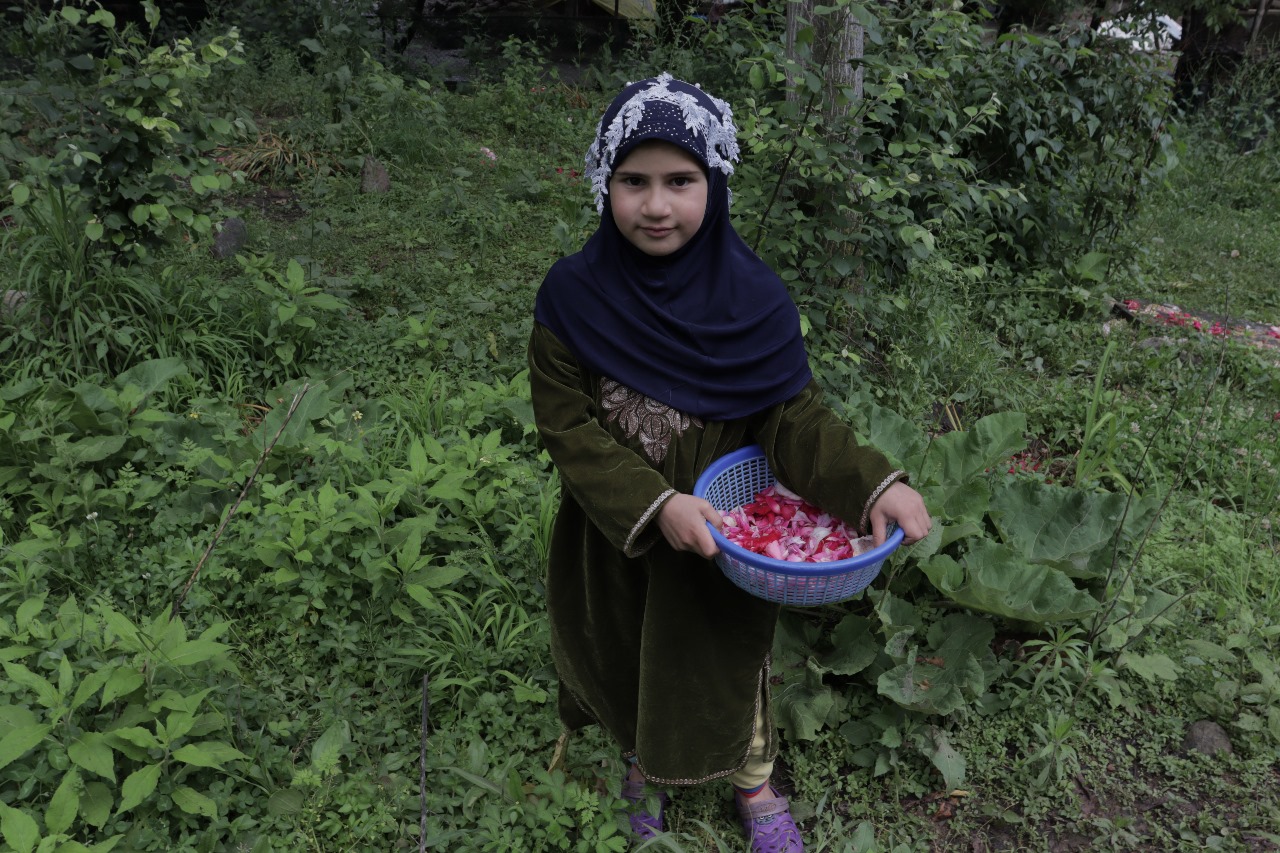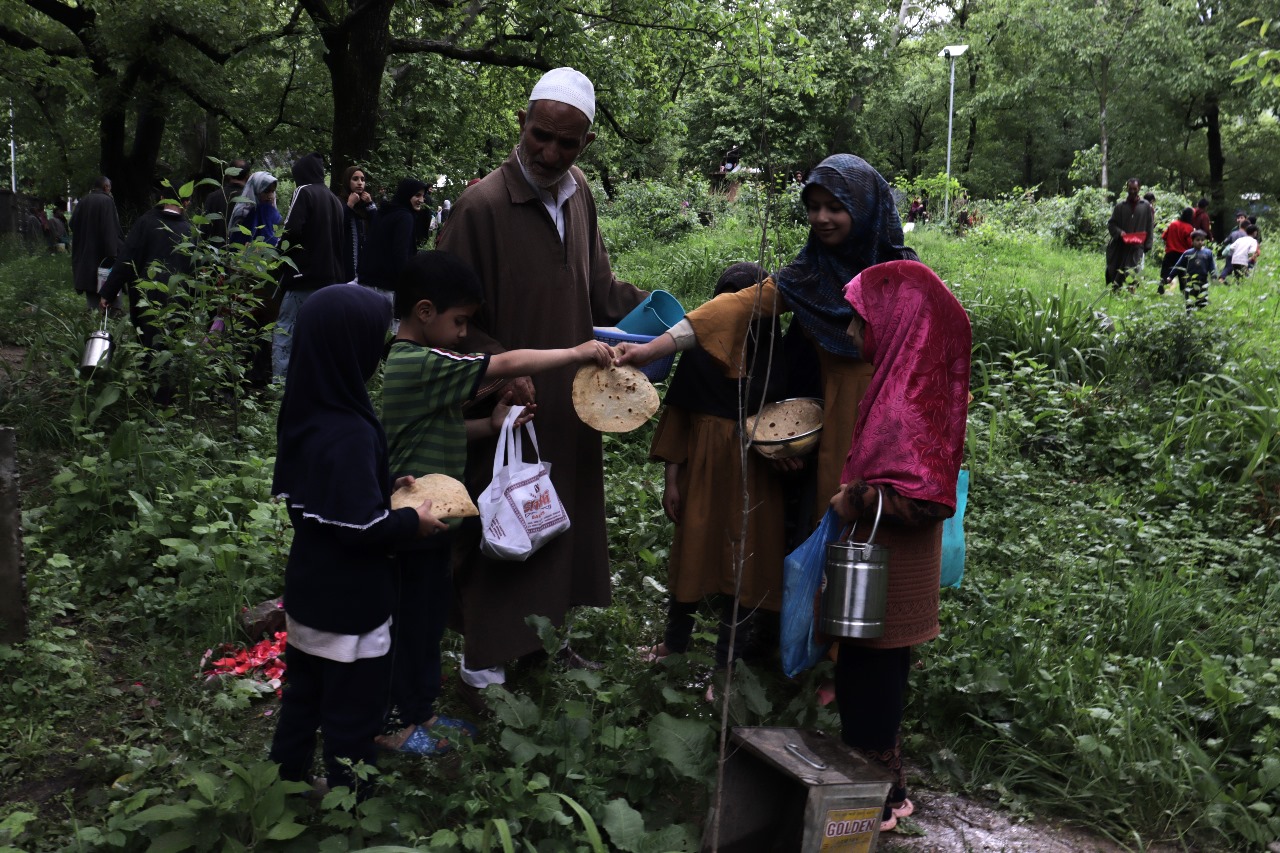When flowers begin to sprout and bloom, villages in South Kashmir observe a unique ritual known as Rohan Posh—a springtime offering of flowers to the dead, bringing hundreds of men, women, and children to graveyards with baskets of petals to shower, water to sprinkle, handmade bread to distribute, and heartfelt prayers for their lost ones.
Celebrated annually, Rohan Posh is observed after a pious elderly woman selects a date, which is then announced to the community, with women beginning preparations of breads and baskets, gathering flower petals from the fields, and children dressing up—some in new clothes, like for Eid—as they begin accompanying their elders to the cemeteries.
Though the practice is not rooted in Islamic scriptures, it has been passed down through generations as a deeply cultural tradition.

“We deliberately bring our children with us—it’s imperative for them to learn, understand, and keep the ritual alive,” says Ghulam Ali, 55, a resident of Sofipora, a village in South Kashmir’s Pahalgam.
“We remember the dead, pray for them, and beautify their resting places, considering it a reality and inevitability of life.”
“One doesn’t have control over such things—people come and go. To help us cope with this reality, we try to beautify the loss. We try to look at it through a different mirror, where even parting can be beautiful, and absence becomes another form of presence,” he says while slowly showering petals, lightly moving his fingers as if weaving threads of longing over the names and boundaries of the grave.
Nearby, Salman Ali, 29, draped in a grey pheran, the traditional Kashmiri garment, reflects on the preparations for the festival.
“Preparations start a week ahead, and as children, we were always filled with excitement. The graveyard never seemed haunted—instead, it felt like a sanctuary of peace, where the lost ones weren’t truly buried but were here with us, their memories blossoming fresh, just like today.”

Such festivals are also important because they create a space that brings people together—offering a rare moment to connect in a world full of distractions from smartphones and the busyness of everyday life.
Here, once a year, we gather to share food and remember our beloved lost ones,” he says, sprinkling water on the grave, refreshing the very soil—like nurturing the remnants beneath.
Although the origins of Rohan Posh remain unclear, it is practiced by both “Shia” and “Sunni” communities alike. With the ritual complete and the sun sinking beyond the horizon, people return home, yet the buried live on in the memory of the living—dwelling in the twilight between realms, where the veil softly fades.
In this sacred space, love weaves longing into belonging, parting melts into eternal embrace, and the departed rest in peaceful silence.